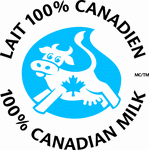
GreennovateChina/Video screen capture
from TreeHugger.com
by Sami Grover - Science / Sustainable Agriculture
From whale meat for sale on Amazon to exploding pigs in the Midwest, the symptoms of a broken food system are evident everywhere.
A new video from GreennovateChina, the folks who brought us the Real Cost of Our Clothes, does an excellent job of outlining the challenges we face.
From an overly industrialized food production system, through a reliance on corn and GMOs, to neglecting the health of our soils and marketing foods based on cravings and psychology, not nutrition, this is a pretty comprehensive overview of the major issues that advocates for healthier, more sustainable food are trying to fix.
Unlike some sustainable agriculture advocates, the video is also not afraid to tackle the most contentious elephant in the room—over consumption of meat and its impact on our health and our ecology. As witnessed in the EWG's Meat Eater's Guide, consumption of certain meats and cheeses can dramatically increase a person's individual carbon footprint, so encouraging a more measured approach to consuming animal products and/or considering vegetarianism is clearly a key part of any attempt to encourage greener, less harmful diets.
But given GreennovateChina's willingness to tackle the meat issue, I am disappointed they left out another key step in changing our food system—voting and campaigning. At risk of sounding like a broken record, voting and shopping are not the same thing and I am personally not convinced that they are even separate but equal. Sure, the video references Carlo Pettrini and Jamie Oliver's explicitly political attempts at changing our food system, but the summary in conclusion (shown in the screen grab above) leaves the politics in the shopping cart and/or in the class room.
Yes, what we buy everyday shapes the politics of food, and yes we have to educate ourselves and make better choices, but unless those better choices are reflected at the ballot box as much as the cash register, I fear we'll all be tut tutting at the salad bar in Whole Foods while the rest of the world goes to hell in a hand basket. Maybe you have to meet (meat?) the world where it's at, and perhaps the audience for this video is not ready to man the barricades. But let's not pretend that education and eating are enough. At some point we've got to raise our voices too, even if we talk with our mouths full.
...read the full story at TreeHugger.com








